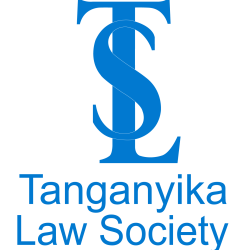Call for proposal to provide Consultancy Service to Tanganyika Law Society (TLS) for Conducting Staff Audit
1.0 Introduction
The Tanganyika Law Society (TLS) is the Bar Association of Tanzania Mainland, founded in 1954 by an Act of Parliament – the Tanganyika Law Society Ordinance, Chapter 344. TLS was established with among other objectives to maintain and improve the standards of conduct and learning of the legal profession, to facilitate the acquisition of legal knowledge by members of the legal profession and others, and to assist the Government and the Courts in all matters affecting legislation and administration and practice of the law and to represent, protect and assist members of the legal profession and the public in all matters touching, ancillary or incidental to the law.
2.0 Background of the Problem
Tanganyika Law Society has reviewed its Strategic Plan (2023-2025). In order to enable effective implementation of the revised Strategic Plan, TLS has to improve the productivity of individual employees and thus increase organizational effectiveness by better utilization of the organization’s Human resources.
That being the case TLS is in need of conducting a personnel audit/HR Audit in order to analyze and evaluate the effectiveness of personnel/ human resource management in an organization and to determine the steps required for more effective utilization of human resources.
3.0 Purpose of the Personnel Audit
This is an independent review and assessment aim to
- To evaluate the current number of staff and determine how many workers should the organization have to handle the volume of work.
- To evaluate personnel capacity and capability in order to know which worker is the best for which position and also to create a foundation for individual development and career plans of employees.
- Improving the performance of the organization as a whole and the optimization of human resources.
- Improving the management system of human resources in an organization, including an incentive system.
- Strengthening the system use of motivational tools in the organization.
- To review the whole organizational system of human resource practices, i.e., acquiring, developing, allocating, and utilizing human resources in the organization in order to suggest ways to meet the challenges of personnel/human resource management.
- To evaluate the effectiveness of various personnel policies and practices.
4.0 Areas for Audit
- Personnel policies, procedures and practices;
- The level of personnel quality (competencies, capabilities, skills);
- Correct settings of the scope of the powers and responsibilities of workers;
- Efficient use of human resources;
- Adequacy of the number of human resources (deficiency or excess);
- Morale development;
- Employee benefits, wage and salary administration.
- Others, as may be identified during engagements between TLS and the Consultant
5.0 Expected Outputs from the personnel audit
- Identification of weaknesses (on use of human potential, use of people with the wrong skills, qualities and knowledge);
- Recommendations and proposals for improvement of human resource management.
6.0 Auditing Standards
The Audit services should be carried out in accordance with International Standards for the Professional Practice of Internal Auditing (Standards) and or any other International Standards that are appropriate for Audit procedures.
7.0 Scope of work
The Personnel audit will focus on the entire organization (it targets all staff in all departments in TLS headquarter and chapter offices).
8.0 Description of Responsibilities
The Consultant will perform the following tasks:
8.1 Consultant’s Preparations Before Fieldwork
This will include but not limited to
- Prepare a checklist and data collection tools;
- Selection and determination of evaluation criteria;
- Construction of measurement scales and preparation of evaluation principles;
8.2 Entry meeting:
The Consultant will meet with key staff members and volunteers, if any, to discuss particular issues considered to be important. As such, the Consultant will do the following:
- To talk about the audit procedures;
- To develop a program for the audit;
- Discuss the checklist of documents to be scrutinized;
- Do any other activities commensurate to the work.
8.3 Examine material information
The consultant will scrutinize all available information pertaining to personnel. This includes but is not limited to policies, guidelines, manuals, performance management documents and forms, and computer capabilities.
8.4 Interview with employees
The Consultant will interview key managers and other employees. The purpose is to pinpoint issues of concern, strengths, anticipated needs, and managerial views on human resources.
8.5 Data analysis
The Consultant will analyze the data gathered to prepare a draft report.
8.6 Exit meeting
The Consultant will conduct the exit meeting with the EXCOM in order to communicate audit findings to the EXCOM and to obtain EXCOM’s comments on proposed findings and recommendations before the draft audit report is issued.
8.8 Final Report
The Consultant is required to present a final report that should include Findings and recommendations.
9.0 Consultancy Duration
The Consultant will work for 10 working days spread out from the date of signing of the contract of service.
10.0 Submission of the Proposal
Interested Individual Consultants must submit the following documents/information, to demonstrate their qualifications:
- Proposal explaining why they are the most suitable for the work, drawing on their knowledge and previous experience.
- Technical proposal
- Financial proposal
11.0 How to apply
All applications should be addressed to the Executive Director, Tanganyika Law Society
P.O. BOX 2148, Dar es Saalam Tanzania. Send your applications to recruitment@tls.or.tz with a copy to info@tls.or.tz. Please visit our website https://tls.or.or.tz for more details.
APPLICATIONS MUST BE RECEIVED NO LATER THAN NOVEMBER 6,2023



Leave A Comment